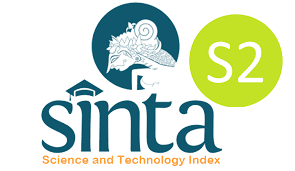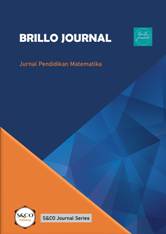Technological Knowledge Among Mathematics Pre-Service Teachers in Indonesia and the Philippines: A Comparative Study
DOI:
https://doi.org/10.56773/bj.v4i2.111Keywords:
Technological Knowledge, Mathematics Preservice-Teachers, Indonesia, PhilippinesAbstract
This comparative study investigates the Technological Knowledge (TK) readiness of mathematics pre-service teachers in Indonesia and the Philippines. Using a structured online survey, data were collected from 136 participants in Indonesia and 93 in the Philippines. TK readiness was categorized into three levels: Ready, Moderately Ready, and Not Ready, with demographic factors such as age, sex, and school type examined as potential influences. The results indicate that Indonesian pre-service teachers demonstrate higher TK readiness compared to their Filipino counterparts. No statistically significant associations were found between TK readiness and demographic variables in either country. The findings suggest a need for targeted interventions in teacher education programs to enhance TK competencies and ensure effective technology integration in mathematics classrooms. Implications for curriculum design and future research are discussed.
References
Aguinaldo, B. E. (2013). Implementing Blended Learning in an Impoverished Academic Institution Using a Bricolage Approach Model. International Journal of Information and Education Technology, 211–216. https://doi.org/10.7763/IJIET.2013.V3.266
Ayu, P., Sudana, P., Santosa, M., Ratminingsih, N. M., Padmadewi, N. N., Putu, L., Adnyani, S., & Artini. (2024). Pre-Service Teachers’ Perception of Digital Literacy. Journal of Education Technology. https://api.semanticscholar.org/CorpusId:267349749
Celeste, R. J., & Osias, N. C. (2024). Challenges and Implementation of Technology Integration: Basis for Enhanced Instructional Program. American Journal of Arts and Human Science. https://api.semanticscholar.org/CorpusId:270262565
Damanik, J., & Widodo, W. (2024). Unlocking Teacher Professional Performance: Exploring Teaching Creativity in Transmitting Digital Literacy, Grit, and Instructional Quality. Education Sciences. https://api.semanticscholar.org/CorpusId:269021917
Daulay, I. R. (2024). English Teachers’ Perceptions of Technological Pedagogical and Content Knowledge (TPACK) and Its Application in English Language Teaching: Post-COVID-19. JPP (Jurnal Pendidikan Dan Pembelajaran). https://pdfs.semanticscholar.org/df74/73c130cb2232cd5d36e470eea4579a92c5ca.pdf
Diamah, A., Rahmawati, Y., Paristiowati, M., Fitriani, E., Irwanto, I., Dobson, S., & Sevilla, D. (2022). Evaluating the effectiveness of technological pedagogical content knowledge-based training program in enhancing pre-service teachers’ perceptions of technological pedagogical content knowledge. Frontiers in Education. https://doi.org/10.3389/feduc.2022.897447
Erviana, V. Y., Hidayah, R., Haryanto, H., Mahfuzah, A., Suwarjo, S., & Wuryandani, W. (2022). Digital Literacy Analysis of Elementary School Teachers on Distance Learning Instructional Process in Yogyakarta. AL-ISHLAH: Jurnal Pendidikan. https://api.semanticscholar.org/CorpusId:251165542
Farjon, D., Smits, A., & Voogt, J. (2019). Technology integration of pre-service teachers explained by attitudes and beliefs, competency, access, and experience. Comput. Educ., 130, 81–93. https://doi.org/10.1016/J.COMPEDU.2018.11.010
Herrera, L. M. M., Ordóñez, S. J., & Ruiz-Loza, S. (2024). Enhancing mathematical education with spatial visualization tools. Frontiers in Education. https://api.semanticscholar.org/CorpusId:267785910
Irwanto, I., Redhana, I. W., & Wahono, B. (2022). Examining Perceptions of Technological Pedagogical Content Knowledge (TPACK): A Perspective from Indonesian Pre-service Teachers. Jurnal Pendidikan IPA Indonesia. https://pdfs.semanticscholar.org/01b5/ec333352c8a0a273d15753a2d85d02423351.pdf
Ivanishchenko, K., Busana, G., & Reuter, R. A. P. (2024). Understanding factors affecting fundamental school teachers’ use of technology in Luxembourg through a survey study. Heliyon, 10. https://api.semanticscholar.org/CorpusId:268762600
Kara, S. (2021). An Investigation of Technological Pedagogical and Content Knowledge (TPACK) Competencies of Pre-Service Visual Arts Teachers. International Journal of Technology in Education. https://doi.org/10.46328/IJTE.184
Kerimbayeva, B., Niyazova, G., Meirbekov, A., Kibishov, A., & Usembayeva, I. (2024). A network communicative culture for future teachers: development of digital literacy and communicative competence. Cogent Education, 11. https://api.semanticscholar.org/CorpusId:270842107
Kisalama, R., & Kafyulilo, A. (2012). Developing Pre-service Teachers’ Technology Integration Competencies in Science and Mathematics Teaching: Experiences from Tanzania and Uganda. Makerere Journal of Higher Education, 3. https://api.semanticscholar.org/CorpusId:176689559
Kyne, S. H., Lawrie, G. A., Thompson, C. D., & Reyes, C. T. (2022). Implementing blended first-year chemistry in a developing country using online resources. Online Learning. https://api.semanticscholar.org/CorpusId:247443074
Li, M. (2023). Chinese mathematics teachers’ TPACK and attitudes toward ICT integration in the post-pandemic era. Eurasia Journal of Mathematics, Science and Technology Education. https://pdfs.semanticscholar.org/4832/b565f2ddb088f792e3345f0baf50ddf262c2.pdf
Mastul, A. H., Vera, C. T. De, & Jayme, C. B. (2023). Understanding the Use of EduTech in Schools in the Philippines: Recommendations for Effectiveness. Engineering Science Letter. https://api.semanticscholar.org/CorpusId:260985746
Mishra, P. (2019). Considering Contextual Knowledge: The TPACK Diagram Gets an Upgrade. Journal of Digital Learning in Teacher Education, 35, 76–78. https://doi.org/10.1080/21532974.2019.1588611
Mohebi, L. (2021). Theoretical Models of Integration of Interactive Learning Technologies into Teaching: A Systematic Literature Review. International Journal of Learning, Teaching and Educational Research. https://api.semanticscholar.org/CorpusId:245974125
Musyaffa, A. A., B, A. M., Ichsan, I., Setianto, A. Y., & Hasanah, M. (2023). Examining It-Based Human Resources Strategies in Islamic Higher Education and Islamic Boarding Schools In Indonesia. Tafkir: Interdisciplinary Journal of Islamic Education. https://pdfs.semanticscholar.org/781f/9f9a7a56fddda397b049f6becad98e6ae691.pdf
Ngao, A., & Xiaohong, T. (2020). Teacher Education in Tanzania: Pre-Service Teachers Preparation for the 21st Century. Journal of Education and Practice. https://api.semanticscholar.org/CorpusId:219069610
Nqabeni, N., & Nqabeni, P. (2023). Assessing Technology and Digital Platforms for Data-Driven Mathematics teaching and learning in South African Schools. E-Journal of Humanities, Arts and Social Sciences. https://api.semanticscholar.org/CorpusId:265705583
Oktaviani, H. I., & Utami, D. D. (2024). Development Of Training Programs To Enhance Teachers’ Digital Skills With Technological Pedagogical Content Knowledge (TPACK). Journal of Educational Technology Studies and Applied Research. https://pdfs.semanticscholar.org/ae49/84497f8d950f04d69bec0e01792549e3cf76.pdf
Puspandari, L. E. (2023). Exploring pedagogical potentials of technology: professional development for English teachers of vocational higher education. Journal of Applied Studies in Language. https://api.semanticscholar.org/CorpusId:259564192
Rafiq, K. R. M., Yunus, M., & Susiati. (2022). Re-envisioning Technological Pedagogical Content Knowledge and Online Teaching Readiness of English for Foreign Language Pre-service Teachers in Language Teacher Education. Frontiers in Psychology, 13. https://api.semanticscholar.org/CorpusId:250342807
Rakes, C. R., Stites, M. L., Ronau, R. N., Bush, S. B., Fisher, M. H., Safi, F., Desai, S., Schmidt, A., Andreasen, J. B., Saderholm, J., Amick, L., Mohr-Schroeder, M. J., & Viera, J. (2022). Teaching Mathematics with Technology: TPACK and Effective Teaching Practices. In Education Sciences (Vol. 12, Issue 2). https://doi.org/10.3390/educsci12020133
Raphael, C., & Mtebe, J. (2024). Understanding teachers’ technological and pedagogical knowledge at the University of Dar es Salaam in the New Normal Era: Situating teaching in the TPACK Framework. University of Dar Es Salaam Library Journal. https://doi.org/10.4314/udslj.v18i2.11
Santos, J. M., & Castro, R. D. R. (2020). Technological Pedagogical content knowledge (TPACK) in action: Application of learning in the classroom by pre-service teachers (PST). Social Sciences & Humanities Open. https://doi.org/10.2139/ssrn.3661054
Saparbayeva, E., Abdualiyeva, M., Torebek, Y., Madiyarov, N., & Tursynbayev, A. (2024). Leveraging digital tools to advance mathematics competencies among construction students. Cogent Education, 11. https://api.semanticscholar.org/CorpusId:268034207
Sartika, N. S., Ditasona, C., Hakim, Z., & Permatasari, P. (2025). TPACK Framework : Impact on High School Mathematics Instruction. International Journal of Computational and Experimental Science and Engineering, 11(3), 4686–4698. https://doi.org/10.22399/ijcesen.2830
Sastria, E. (2023). Indonesian Pre-service and In-service Science Teachers’ TPACK Level. International Journal of Biology Education Towards Sustainable Development. https://api.semanticscholar.org/CorpusId:259463462
Serin, H. (2023a). The Integration of Technological Devices in Mathematics Education: A Literature Review. International Journal of Social Sciences & Educational Studies. https://api.semanticscholar.org/CorpusId:261085109
Serin, H. (2023b). The Role of Technology in Mathematics Education: Promoting Student Achievement. International Journal of Social Sciences & Educational Studies. https://api.semanticscholar.org/CorpusId:260941357
Setyosarı, P., Ulfa, S., Soepriyanto, Y., Slamet, T., Kuswandi, D., & Luan, W. S. (2020). Investigating Students’ Profiles and Perception of Using TPACK Framework of Primary Teacher Education Program. Proceedings of the 6th International Conference on Education and Technology (ICET 2020). https://doi.org/10.2991/assehr.k.201204.058
Simbolon, K., Ditasona, C., & Setiawan, L. F. (2024). Improving Mathematical Understanding on Geometry for 9th Grade Students through Three-Dimensional Mathematics Learning Media Based on Virtual Reality. Brillo Journal, 4(1), 59–75.
Sofendi, Inderawati, R., & Vianty, M. (2021). Technology Use and Technology-Related Learning Experiences as Perceived by Indonesian Tertiary EFL Students. International Journal of Applied Linguistics and English Literature, 10, 33–40. https://api.semanticscholar.org/CorpusId:236406522
Sunzuma, G. (2023). Technology integration in geometry teaching and learning. LUMAT: International Journal on Math, Science and Technology Education. https://api.semanticscholar.org/CorpusId:261160068
Tafrihah, Utanto, Y., & Pristiwati, R. (2024). Optimizing Digital Literacy Integration in Early Childhood Education: A Case Study of Tarbiyatul Athfal Bulumanis Kidul Kindergarten. Golden Age: Jurnal Ilmiah Tumbuh Kembang Anak Usia Dini. https://api.semanticscholar.org/CorpusId:276658213
Tiba, C., & Condy, J. (2021). Identifying Factors Influencing Pre-Service Teacher Readiness to Use Technology During Professional Practice. Int. J. Inf. Commun. Technol. Educ., 17, 149–161. https://doi.org/10.4018/ijicte.20210401.oa2
Tomaro, Q. P. (2018). ICT integration in the educational system of Philippines. Unknown. https://pdfs.semanticscholar.org/7ff0/80b52fd663e306b1519018187babe16f1f40.pdf
Wah, L. L., & Hashim, H. (2021). Determining Pre-Service Teachers’ Intention of Using Technology for Teaching English as a Second Language (ESL). Sustainability. https://pdfs.semanticscholar.org/b1d1/96ad67070e498a8bb41d44c3551a552ed4cc.pdf
Zara, N. O. (2021). Technology in Language Education Course: Operationalizing TPCK in Preservice Language Teacher Education. The Normal Lights. https://pdfs.semanticscholar.org/0c51/29b98bc8af7b02354ae96069f4018fea697f.pdf
Zhang, X. (2022). Current Situation and Strategy of Mathematics Anxiety among Mathematics Majors. In Creative Education (Vol. 13, Issue 3, pp. 929–940). Scientific Research Publishing, Inc. https://doi.org/10.4236/ce.2022.133061
Downloads
Published
How to Cite
Issue
Section
License
Copyright (c) 2025 Candra Ditasona, Santri Chintia Purba, Stevi Natalia, Hotmaulina Sihotang, Merley Junsay, Rene T Estomo

This work is licensed under a Creative Commons Attribution 4.0 International License.
The authors agree that this article remains permanently open access under the terms of the Creative Commons Attribution 4.0 International License





